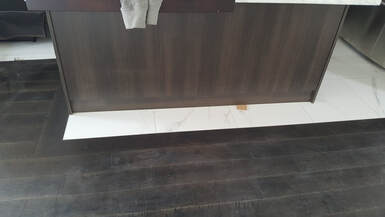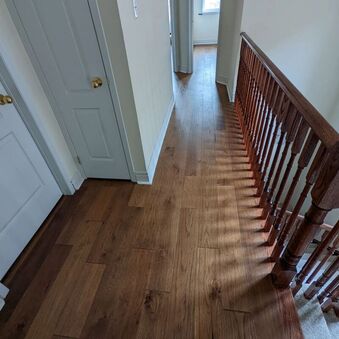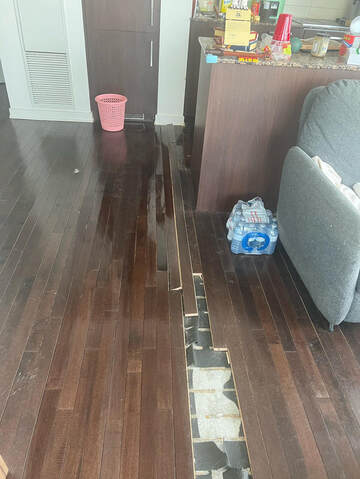Is It OK to Install Engineered Hardwood Flooring in Your Toronto Kitchen?
Are you contemplating a kitchen remodel and wondering if engineered hardwood flooring is a viable choice? This is a question many homeowners in Toronto grapple with. While hardwood floors undeniably add a touch of warmth and sophistication, is it advisable to install them in a kitchen? Let's explore this.
The Allure of Engineered Hardwood Flooring
The Kitchen Environment: Challenges for Hardwood Flooring
A Case for Tile Flooring in the Kitchen Engineered Hardwood Floor to Tile Transition Engineered Hardwood Floor to Tile Transition
Given the potential challenges with hardwood flooring in the kitchen, you might wonder if there's a more resilient option. This is where tile flooring shines. Tile is extremely durable, water-resistant, and easy to clean, making it an excellent choice for kitchens. It can withstand spills, stains, high foot traffic, and even hot pans, without sustaining damage.
While at Parqueteam Hardwood Flooring, we pride ourselves on our engineered hardwood flooring offerings in Toronto, we believe in providing our customers with the best advice for their specific needs. Given the potential for water damage and the higher maintenance needs, we typically recommend considering tile for kitchen flooring. Nonetheless, if your heart is set on the warmth and beauty of engineered hardwood, it can indeed be a suitable choice, given proper care and maintenance. In conclusion, while it's entirely possible to install engineered hardwood flooring in your kitchen, it's essential to be aware of the potential challenges. If you're ready to embrace the maintenance and care hardwood requires, it can certainly add a touch of elegance to your kitchen. But for practicality and durability, tile flooring might be the more sensible choice. FAQ
1. What is engineered hardwood flooring?
Engineered hardwood flooring is a type of flooring that combines a real hardwood surface layer with multiple layers of plywood or high-density fiberboard underneath. This construction makes it more stable and less susceptible to changes in temperature and humidity compared to solid hardwood. 2. How does engineered hardwood flooring compare to solid hardwood flooring? While solid hardwood is made entirely of a single type of wood, engineered hardwood consists of a thin layer of real wood on top and several layers of plywood or high-density fiberboard beneath. This makes engineered hardwood more stable and less prone to warping or shrinking due to changes in temperature or humidity. However, solid hardwood can typically be sanded and refinished more times than engineered hardwood. 3. What are the pros and cons of installing engineered hardwood flooring in a kitchen? The pros of installing engineered hardwood flooring in a kitchen include its attractive appearance, comfort underfoot, and durability. However, it can be susceptible to water damage if not properly sealed and maintained. It also has limitations when it comes to refinishing. 4. How do I maintain engineered hardwood flooring in a kitchen? To maintain engineered hardwood flooring in a kitchen, it's important to clean up spills immediately to prevent water damage. Regular sweeping or vacuuming can help remove dirt and debris that could scratch the floor. It's also recommended to use a damp mop and a cleaning product designed for engineered hardwood floors for regular cleaning. 5. Can engineered hardwood flooring be refinished? Yes, engineered hardwood flooring can be refinished, but the number of times it can be refinished depends on the thickness of the top layer of wood. It's important to consult with a flooring professional to determine if your engineered hardwood floor can be refinished.
0 Comments
Leave a Reply. |
Parqueteam Hardwood FlooringHardwood Flooring Toronto and The Greater Toronto Area. Archives
December 2023
Categories
All
|
Areas We Produly Serving... |
|





 RSS Feed
RSS Feed

